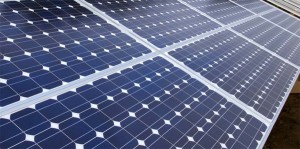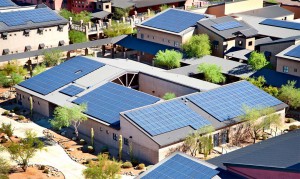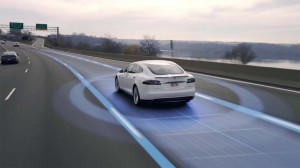Those who were hoping for a big announcement from Tesla Motors are going to have to wait a couple more days, according to CEO Elon Musk, though the Silicon Valley-based electric car company did have some significant news to report on Monday.
Tesla says it will expand its alliance with Japanese electronics giant Panasonic to start producing solar cells. That could be a major development for SolarCity, the solar panel company Tesla recently said it will acquire. Panasonic already produces batteries for Tesla’s electric vehicles and is a major partner in the massive Gigafactory battery plant being erected in Reno, Nevada.
Tesla’s Musk had hinted earlier this month that the company would make an “unexpected” product announcement on October 17th, but in an overnight tweet, the South African-born entrepreneur said the project “needs a few more days of refinement,” and won’t be revealed until Wednesday.
(Musk hints at major announcement. Click Here for more.)
Amidst widespread speculation about what might be in store, some anticipate Tesla could be looking to reveal a new vehicle. In recent months, Musk has suggested the carmaker could add a variety of different options, notably a new Roadster, an electric pickup truck, or a smaller version of the Model X battery SUV.
But most analysts believe that this week’s announcement will focus on an updated version of Tesla’s semi-autonomous Autopilot system. Introduced late last year, the technology is intended to serve as an advanced driver assistance system, or ADAS. But many owners have attempted to use Autopilot like a fully autonomous system. That appears a likely contributor to a May 9th crash in Florida that took the life of a former Navy SEAL driving a Tesla Model S.
Autopilot has also been blamed for a fatal crash in China, as well as several less severe U.S. accidents – though Tesla is disputing at least some of those claims.
With federal regulators in the midst of an investigation of the Autopilot system, Musk recently promised a major upgrade that would allow a Tesla vehicle to more accurately determine road conditions using its built-in radar. He has also indicated Tesla is pushing to come up with a fully autonomous version of Autopilot.
The U.S. Department of Transportation last month revealed a series of guidelines meant to both encourage the development of hands-free technology while also putting pressure on carmakers and their suppliers to ensure such technologies will be safe.
(Tesla’s big plans will cost big money. Click Here for more.)
Whatever news Tesla has in store will now be revealed on Wednesday, according to Musk, who initially tweeted that it would be “unexpected by most.”
The expansion of Tesla’s ties to Panasonic is a little less of a surprise. The two companies have been working in a close partnership on batteries since the Silicon Valley company was first founded. Panasonic is a major partner in the Gigafactory project that is eventually expected to cost about $5 billion. Musk has promised it will be the largest battery plant in the world and will provide lithium-ion technology for power backup systems, as well as automobiles.
Musk has been pushing to expand Tesla beyond the car business, with a goal of providing a wide range of interconnected, green technologies. With the planned acquisition of Solar City, that would include solar panels. Stockholders from both companies are expected to soon vote on the deal and, despite some opposition, it is generally expected to win approval.
Under the non-binding agreement announced Monday, Tesla would provide Panasonic with a long-term purchase agreement for the Japanese company’s solar panels.
“We are excited to expand our partnership with Panasonic as we move toward a combined Tesla and SolarCity. By working together on solar, we will be able to accelerate production of high-efficiency, extremely reliable solar cells and modules at the best cost,” J.B. Straubel, Tesla’s chief technical officer, said in a prepared statement Monday.
While specific details haven’t been released, Panasonic indicated it would consider producing solar panels at SolarCity’s existing factory in Buffalo, New York.
“Panasonic PV cells and modules boast industry-leading power generation performance, and achieve high quality and reliability,” said Shuuji Okayama, Vice-president of Panasonic’s Eco Solutions Company subsidiary. “We expect that the collaboration talks will lead to growth of the Tesla and Panasonic relationship.”
(Tesla deliveries surge during third quarter. Click Here for the latest.)



